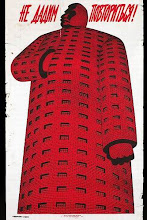[answers available by clicking on the news source's link below]
The Bush administration yesterday decried _________'s use of bombers and missiles in ________ as a "dangerous escalation" of the hostilities there....
"It's hard for us to understand what the _______ plan is," said a senior U.S. official, who briefed reporters on the condition of anonymity. "People can argue back and forth over who shot first," but the _______ response is "far disproportionate to whatever threat" it may have perceived in the ______.
Washington Post* * * * * * * *
But asked today if the ________ response was proportionate to the provocation of the _______ attacks, the White House declined to offer a view.
“I'm not going to take a position on proportionality, because I'm not even sure if I could define what that is,” said...the lead White House spokesman on this issue.
CBS News* * * * * * * *
US Secretary of State Condoleezza Rice said it was vital that all sides cease fire, adding that ______ military operations "really do now need to stop because calm needs to be restored".
NATO said...that it deplored the "disproportionate" force used by ________.
BBC News
As you might have deduced, two of the three quotes are from stories on the Russia-Georgia conflict last August, while the odd-ball is from a story on the current crisis in Gaza.
Of course, these wars are not word games. Considering the brutality and horror of any armed conflict - as well as the terror of living under threat of rocket or mortar fire from Hamas - I am not making light of the real human suffering that is the subject of the above quotes. But in these blessed last days of the Bush administration, let us not forget that the words used by our leaders matter.
As the press goes through the reflexive motions of discussing Bush's "legacy," remember that his decision to express moral outrage at Russia for its response to Georgia's attack on South Ossetia had hardly any real world consequence. The Administration had little leverage that it could exert on Russia. Whereas now, Bush's silence in the face of the death of over 1,000 Palestinians (and counting) is enabling the escalation of violence.
Never mind that any shelling or aerial bombardment in Gaza - one of the most densely populated regions on the planet - intrinsically risks killing, maiming or terrorizing civilians. Never mind that reportedly one-third of those Palestinians killed in Gaza so far have been children. Never mind that the U.S. has real influence on Israel and could - if it had the will - force a cessation of violence in Gaza.
As we await a transition to Barack Obama's administration and hope for better things to come at home, let us also pray for peace and justice in Palestine. It is not clear how the incoming president would have reacted to the recent Israeli onslought had it begun on its watch. No doubt the justifiable condemnation of Hamas rocket fire would have been the same - but that is the easy part. A more balanced and nuanced approach is desperately needed if there is to be any hope of reigning in the IDF's sledgehammer tactics. What the Bush Administration said about Russia's military moves in Georgia go double now with regard to the Israeli offensive in Gaza. Will we hear anything like this from the new administration?
It's hard for us to understand what the Israeli plan is," said a senior U.S. official, who briefed reporters on the condition of anonymity. "People can argue back and forth over who shot first," but the Israeli response is "far disproportionate to whatever threat" it may have perceived from Hamas.










No comments:
Post a Comment